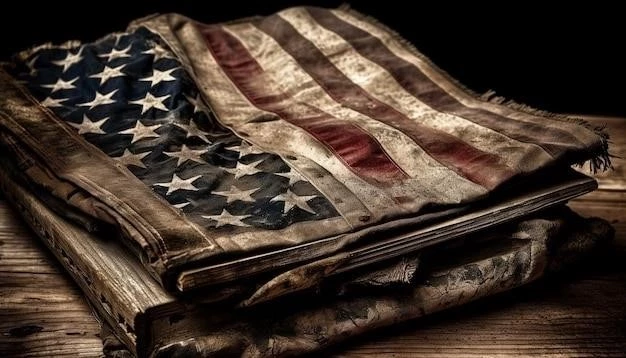Conspiracy theories have been a recurring feature of American history‚ reflecting deep-seated anxieties and societal tensions. These theories‚ often grounded in fear‚ distrust‚ and a desire for simple explanations‚ have shaped public discourse‚ influenced political movements‚ and even fueled violence. While some conspiracy theories remain fringe beliefs‚ others have gained widespread traction‚ impacting public perception and policy decisions.
Early Conspiracy Theories: From Witchcraft to Freemasonry
The colonial era witnessed the emergence of conspiracy theories rooted in religious fervor and anxieties about social order. The Salem Witch Trials (1692-1693) exemplify this‚ fueled by accusations of witchcraft and fears of demonic influence. The theory of a “Popish Plot” in the 17th century‚ alleging a Catholic conspiracy to overthrow the Protestant monarchy‚ also resonated with anxieties about religious and political power.
Later‚ during the American Revolution‚ conspiracy theories played a role in rallying support for independence. The theory of British “tyranny” and a “plot” to enslave the colonies resonated with colonists‚ justifying their fight for freedom. The emergence of Freemasonry in the 18th century also gave rise to conspiracy theories‚ with some believing the organization was a secret society seeking to control government and society.
The 19th Century: Anti-Catholicism and Nativism
The 19th century saw the rise of anti-Catholicism and nativist sentiments‚ fueled by conspiracy theories that depicted Catholic immigrants as a threat to American values and institutions. The “Know-Nothing” movement‚ a political party founded in the 1850s‚ propagated conspiracy theories about Catholic plots to undermine American democracy and establish papal authority. These theories‚ often based on misinformation and prejudice‚ contributed to the rise of anti-immigrant sentiment and violence against Catholic communities.
The assassination of President Abraham Lincoln in 1865 also gave rise to conspiracy theories. Some believed that Lincoln’s assassination was part of a larger plot involving Confederate sympathizers or a secret cabal. These theories‚ while often unfounded‚ reflected the deep divisions and paranoia that existed in the aftermath of the Civil War.

The 20th Century: From Anti-Communism to the JFK Assassination
The 20th century witnessed the emergence of new conspiracy theories‚ driven by fears of communism‚ Cold War tensions‚ and the rise of mass media. The “Red Scare” of the 1950s‚ fueled by McCarthyism‚ propagated conspiracy theories about communist infiltration into American institutions‚ leading to blacklisting and persecution of suspected communists. The assassination of President John F. Kennedy in 1963 ignited a wave of conspiracy theories‚ questioning the official account and suggesting the involvement of the CIA‚ the Mafia‚ or even the Soviet Union. These theories‚ often disseminated through popular culture and alternative media‚ continue to circulate today.
The Watergate scandal of the 1970s further fueled distrust in government and gave rise to conspiracy theories about a “deep state” operating outside of democratic accountability. The rise of the internet in the late 20th century provided new platforms for the dissemination of conspiracy theories‚ allowing them to reach wider audiences and spread rapidly.
The 21st Century: The Rise of Online Conspiracy Theories
The internet has transformed the landscape of conspiracy theories‚ creating a vast network of websites‚ forums‚ and social media platforms where these theories can flourish. Online conspiracy theories often target specific groups‚ spreading misinformation and promoting fear and prejudice. Anti-vaccine movements‚ QAnon‚ and theories about the 9/11 attacks exemplify this trend‚ often fueled by distrust of authority and a desire for alternative explanations.
Conspiracy theories in the 21st century are often characterized by their reliance on selective evidence‚ confirmation bias‚ and the manipulation of information. They exploit existing anxieties and societal divisions‚ often targeting marginalized groups and promoting scapegoating. The rise of “fake news” and the proliferation of misinformation online have further exacerbated the problem‚ making it increasingly difficult to distinguish between fact and fiction.

The Impact of Conspiracy Theories
Conspiracy theories can have a significant impact on individuals‚ communities‚ and society as a whole. They can lead to:
- Erosion of trust in institutions: Conspiracy theories often undermine trust in government‚ media‚ and other institutions‚ making it difficult to address real problems and create solutions.
- Polarization and division: Conspiracy theories can exacerbate existing societal divisions‚ creating echo chambers where people are exposed only to information that confirms their existing beliefs.
- Violence and extremism: In some cases‚ conspiracy theories can lead to violence and extremism. For example‚ the Pizzagate conspiracy theory‚ which falsely claimed that a Washington D.C. pizzeria was a hub for child sex trafficking‚ led to an armed man entering the restaurant and firing shots.
- Hindering public health efforts: Conspiracy theories about vaccines‚ for example‚ have undermined public health efforts and contributed to outbreaks of preventable diseases.
Addressing Conspiracy Theories
Addressing conspiracy theories requires a multifaceted approach that involves:
- Promoting media literacy: Educating the public about how to critically evaluate information and identify misinformation is crucial.
- Supporting fact-checking organizations: Organizations that specialize in debunking misinformation and promoting accuracy play a vital role in combating conspiracy theories.
- Encouraging critical thinking and skepticism: Encouraging people to question information‚ seek multiple perspectives‚ and avoid confirmation bias is essential.
- Building trust in institutions: Addressing the underlying causes of distrust in institutions is crucial to reducing the appeal of conspiracy theories.
Conspiracy theories are a complex phenomenon with a long history in American society. Understanding their origins‚ impact‚ and the factors that contribute to their spread is essential for addressing their negative consequences and promoting a more informed and tolerant public discourse.










